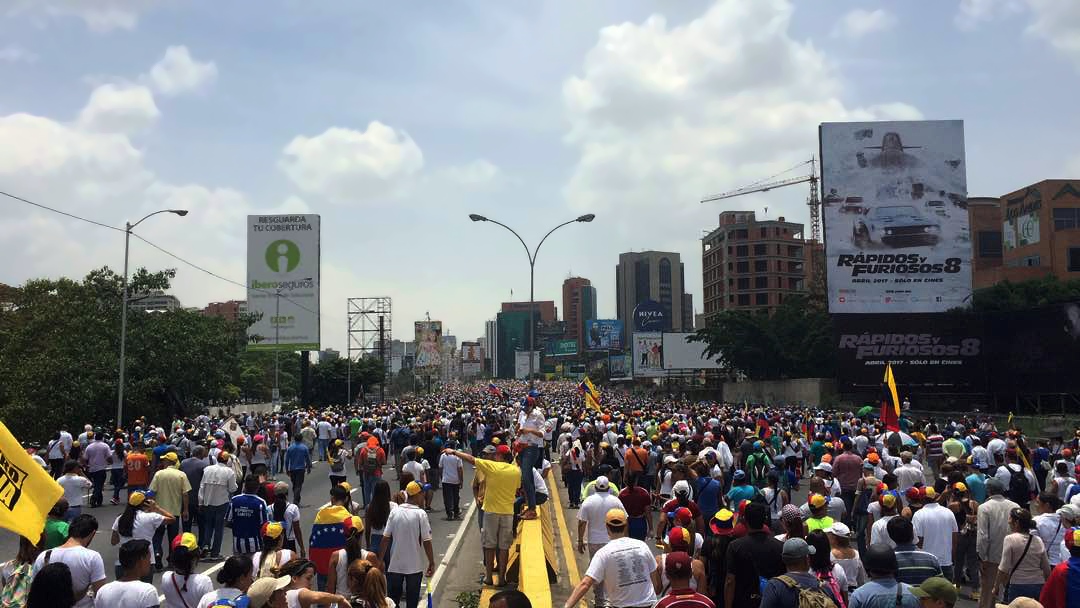Venezuela consumed by social and political disaster
Photo via Google Creative Commons
Known as the Mother of All Marches, Venezuelans protested President Nicolas Maduro and his administration in response to the Supreme Tribunal of Justice dissolving the National Assembly.
June 15, 2017
Protests in Venezuela continue amid the multiple crises faced by the South American nation. The death count since April is now at least 56.
Marches now frequently turn violent, as opposition protesters clash with police. On May 10, protesters threw fecal matter in glass bottles at police, who responded with tear gas and water cannons. The opposition wants free elections, and to unseat President Maduro and the Socialist Party, who have ridden the country into the ground.
Venezuela, which sits on the largest oil reserve in the world, and once boasted a sizable tourism industry, is on the verge of total economic collapse. Massive inflation, 255 percent last year, and 122 percent in 2015, has crippled the nation’s economy. According to estimates by the International Monetary Fund, Venezuela’s economy shrank by 18 percent last year, in comparison to Greece’s 9.1 percent. Economic troubles have lead to widespread food shortages.
Price controls on basic food items combined with inflation-driven high prices on other staples has led to shortages of affordable bread, as bakers produce non-controlled, more expensive pastries in order to keep up with their own living costs. Borders have closed to prevent citizens of neighboring countries from purchasing price-controlled items, but have exacerbated shortages by preventing Venezuelans from purchasing goods unavailable in their own country elsewhere. The black market thrives.
In addition to crippling food shortages, Venezuela’s quality of medical care has reached dangerously low levels. Antibiotics are nowhere to be found, making otherwise minor cuts and scrapes potentially fatal. Intravenous solutions and cancer drugs are likewise near impossible to obtain, and basic items like surgical gloves and soap have disappeared from some hospitals. The hospitals themselves are overcrowded and in poor repair; one public clinic in Barcelona, a Caribbean port town, lacks functional X-ray and dialysis machines. Electrical blackouts can knock out what mechanical aid is available at any time. At the same hospital, four sick newborns died within a day after a power outage shut down the facility’s respirators.
Clean water is hard to come by. At the University of the Andes Hospital in Mérida, surgeons resorted to using seltzer bottles to clean their hands between operations due to water shortages. Though opposition lawmakers declared a humanitarian crisis last January, and passed a law allowing for international aid last year, Maduro and his supporters have fought the effort, seeing it as a seditious attempt to undermine his authority and privatize the health-care system. Hospital conditions continue to decay.
Venezuela is a socialist dictatorship, with Maduro at its head. Maduro and his supporters are locked in a political battle with the opposition, which seeks to remove Maduro from power and reform the government. Maduro, meanwhile, most recently tried to consolidate power and cripple the opposition by dissolving Venezuela’s representative body. The president backed down after international condemnation and threats of embargo.


